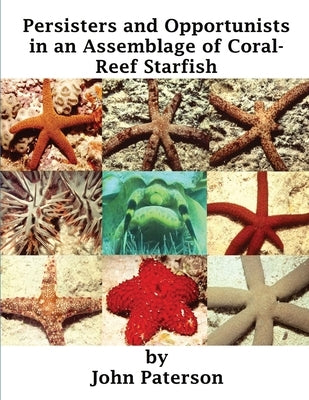Before you leave...
Take 20% off your first order
20% off
Enter the code below at checkout to get 20% off your first order
Discover summer reading lists for all ages & interests!
Find Your Next Read

A thesis submitted according to the requirements for the degree of Doctor of Philosophy in the University of Queensland.
December, 1994.
Coral reefs seem to defy many of the paradigms which characterize less complex biological communities. While there is general agreement that the biota of coral reefs exhibit high species diversity, some authors have characterized coral reef assemblages by selecting species with high population densities (Sale, 1974; 1976; 1977; 1984; Sale and Dybdahl, 1975; Connell, 1978). Other authors have included rarer species (Kohn, 1959; 1968; Den Boer, 1971; Grassle, 1973) and Endean and Cameron (1990 a) have emphasized the importance of the role of these rarer species and stated that rarity is virtually ignored in most ecological models of the coral reef ecosystem. They suggest that our understanding of coral-reef ecology is influenced strongly by the constraints of many of the analytical tools being used in reef studies. As a result they believe that most analyses have dealt primarily with species that are sufficiently numerous to provide statistically satisfactory numbers of records and that most studies have excluded rare species which, in fact comprise the majority of coral-reef species.
The complexity of coral reef ecosystems is not surprising given the great length of time that these ecosystems have been in existence. While the shallow water distribution of coral reefs has varied with the alternation of glacial and interglacial periods (Hays, Imbrie and Shackleton, 1976), in their broad biological form, coral reefs have existed since the Precambrian and reefs similar to present reefs have existed for around 50 million years (Newell, 1972). While stating that there is no general rule for coral-reef organisms, Endean and Cameron (1990 a) have suggested that the attribute of persistence possessed by most of the rarer species characterizes the majority of coral-reef species and is responsible for both structuring and perpetuating this ecosystem. They regard the coral reef ecosystem as being an ordered and predictable system. However, other authors (Sale, 1977; 1991; Connell, 1978) have different views.
Thanks for subscribing!
This email has been registered!
Take 20% off your first order
Enter the code below at checkout to get 20% off your first order